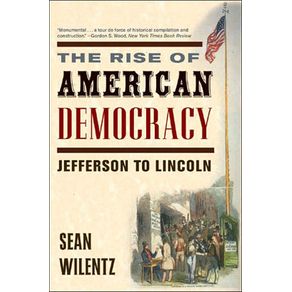As the revolutionary fervor of the war for independence cooled, the new American republic, says Princeton historian Wilentz, might easily have hardened into rule by an aristocracy. Instead, the electoral franchise expanded and the democratic creed transformed every aspect of American society. At its least inspired, this ambitious study is a solid but unremarkable narrative of familiar episodes of electoral politics. But by viewing political history through the prism of democratization, Wilentz often discovers illuminating angles on his subject. His anti-elitist sympathies make for some lively interpretations, especially his defense of the Jacksonian revolt against the Bank of the United States. Wilentz unearths the roots of democratic radicalism in the campaigns for popular reform of state constitutions during the revolutionary and Jacksonian eras, and in the young nation's mess of factional and third-party enthusiasms. And he shows how the democratic ethos came to pervade civil society, most significantly in the Second Great Awakening, "a devotional upsurge... that can only be described as democratic." Wilentz's concluding section on the buildup to the Civil War, which he presents as a battle over the meaning of democracy between the South's "Master Race" localism and the egalitarian nationalism of Lincoln's Republicans, is a tour-de-force, a satisfying summation and validation of his analytical approach. 75 illus.



